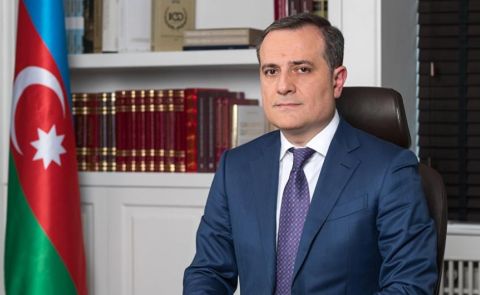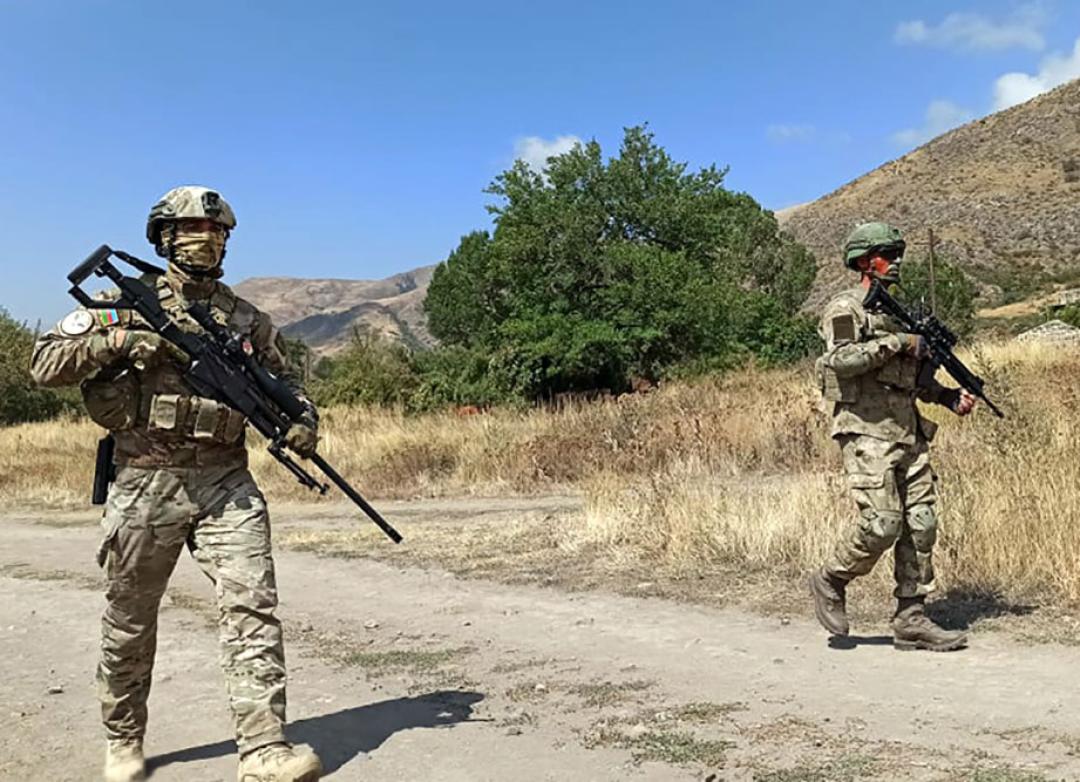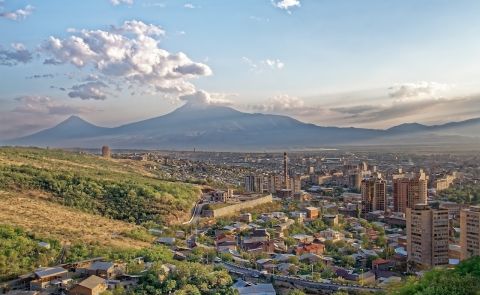
The pace of various military drills between the Azerbaijani and Turkish armed forces is growing

Since the outset of 2021, the Azerbaijani and Turkish armed forces have been conducting regular joint military exercises to facilitate the transition of the Azerbaijani Army to the Turkish Army model.
Although the Azerbaijani Defence Ministry has not yet reported about the Fraternal Brigade project, it is known that after the 44-day Karabakh war, President Ilham Aliyev signalled that the Azerbaijani Army would be reformed and upgraded according to the Turkish Army model and would be equipped with modern weapons.
Quoting the Turkish National Defence Ministry's tweet about the military exercises and the dispatch of an Azerbaijani Army unit to Turkey as part of the Fraternal Brigade project, it was explained that the unit will be involved in the drills as part of the 18th Mechanised Infantry Brigade of the Turkish Army in Canakkale, designed to enhance cooperation between the Turkish and Azerbaijani armed forces.
Servicemen from different troops are sent to Turkey, where they undergo special training. The Fraternal Brigade project is not the only such a project. Recently, the Turkish National Defence Ministry announced the next joint exercises, codenamed Frontal Air Control. The term Frontal Air Control stipulates military air forces operations aimed at hitting targets on the enemy's territory, while avoiding causing harm to friendly forces.
Privately-owned pro-government Yeni Musavat Daily predicts further deepening of cooperation between the Azerbaijani and Turkish armed forces in years to come.
The paper's report entitled "Baku and Ankara are in preparation - a visit of the [Azerbaijani] defence minister and the chief of the General Staff [to Turkey]" claims that the sides also discussed the possible involvement of Turkey in the upcoming 8 November Victory Day parade in Shusha.
At meetings with Turkey's political and military leadership, the Azerbaijani military top brass was assured of all-out military cooperation and Turkish Minister of National Defence Hulusi Akar said that they would continue to stand by Azerbaijan in its just struggle, the paper says.
The news organisation alleges that the gathering of the Armenian Army reservists, the change of the commander of the Russian peacekeepers in Karabakh, illegal shipments from Iran to Karabakh as well as some sensitive issues in the region inevitably draw attention to the visit.
MP Elman Nasirov of the ruling party told Yeni Musavat that extensive and comprehensive meetings were held with Turkey's military leadership during the visit of the new Chief of the General Staff Karim Valiyev.
"Very serious issues were discussed. It is already possible to make preliminary conclusions about the importance of the meeting. First, it is necessary to pay attention to the timing of this meeting. The intensity of Armenia's provocations has recently increased. It has even grown so much that they are not afraid to fire on the city of Susa. At the same time, the reasons for Nikol Pashinyan's behaviour are clear. When the supreme commander-in-chief of the Azerbaijani Armed Forces, [Ilham Aliyev], said that the war was over, it was a post-war period. By intensively violating the ceasefire, the Armenian Armed Forces wanted to spread the opinion that the conflict was not over," the parliamentarian said.
In this regard, the desire to revive the OSCE Minsk Group does not go unnoticed. At the same time, Armenia states that it does not want to sign a peace agreement under any circumstances, stating that the agreement can only be in exchange for resolving the issue of the legal status of Nagorno-Karabakh.
Under these circumstances, we see that the number of joint military exercises of the Azerbaijani and Turkish armed forces is growing and becoming more intensive. Pakistan is already closely involved in this process. The Azerbaijan-Turkish joint military exercises are being held in Lachin for the first time after liberation. And now Valiyev’s visit to Turkey and the on-going negotiations are a continuation of the process, Nasirov says.
See Also


Nordic-Baltic Delegation Meets Armenian Leaders to Discuss Regional Cooperation and Peace

Azerbaijan Strengthens Energy Partnerships with Multiple Countries

BP Strengthens Presence in Azerbaijan’s Offshore Energy Sector

Netanyahu’s Letter to Aliyev: Mutual Trust, Solidarity Following Hamas Attacks, Facilitating Dialogue Between Israel and Türkiye

